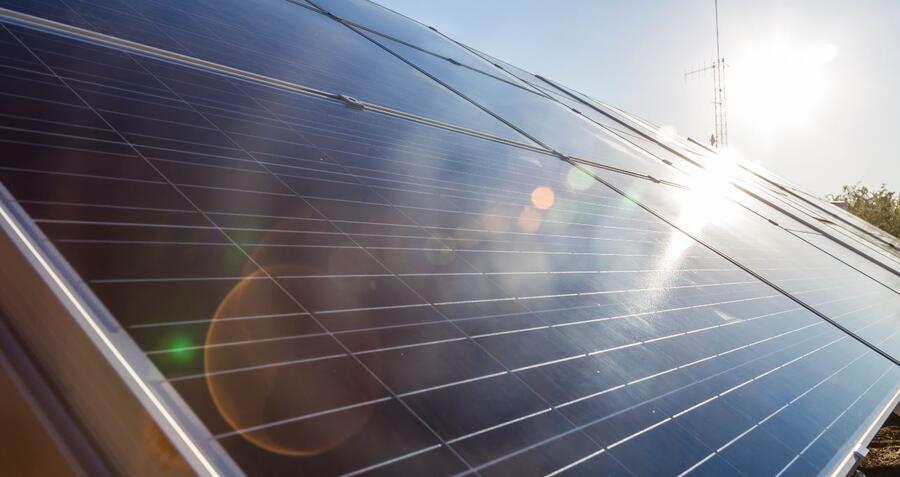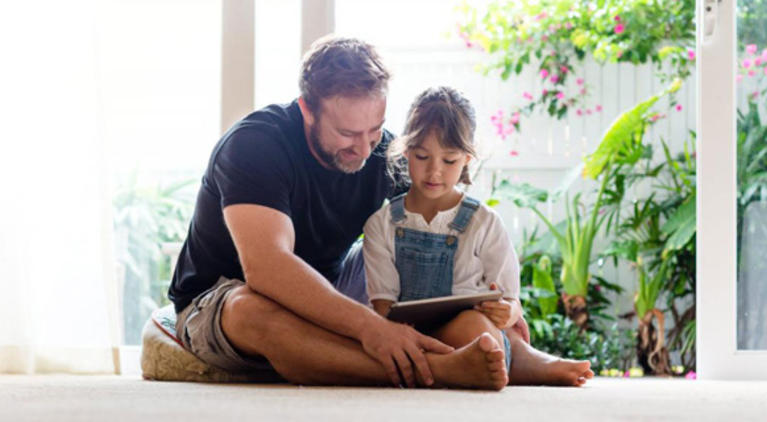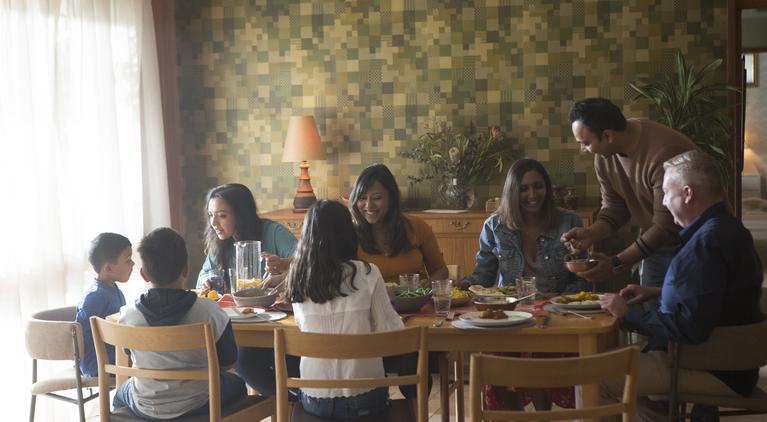Your solar pv system is made up of several different components. Depending on the system you've purchased, you'll have a number of solar panels secured to your roof with mounting equipment and an inverter. More advanced systems come with performance monitoring equipment, and if you've got a solar-plus-storage system, you'll also have a rechargeable battery.
Your solar panels do most of the hard work, taking in photons from the sun's rays and turning them into DC or ‘Direct Current' energy. An inverter takes the DC energy produced by your panels and converts it into AC or ‘Alternating Current' power that can be used by household appliances.
Performance monitoring equipment can help you to keep track of how much renewable energy your system is actually producing and can help you identify any faults to ensure your system is running at its most efficient. You can get this equipment wired into your switchboard, although some inverters come with a monitoring device already inbuilt. The most sophisticated models can even feed data to a program that you can access via the Internet or a mobile app.
Solar-plus-storage systems include a rechargeable battery storage system that can store any excess energy your solar panels create and you don't use simultaneously.
While a battery definitely reduces reliance on the solar electricity grid, the vast majority of households find that going off-grid isn't a realistic possibility just yet: most people consume far more energy than they can produce and store. Consequently, most solar-plus-storage systems will still need to be connected to the grid. Systems with both batteries and grid connection work off a combination of power produced by the system's own solar panels, power stored in the battery, and power drawn down from the grid.
So where does your solar-plus-storage solar energy system get its energy from?
Bright, sunny days
On a bright day with plenty of sunshine, your solar panels will be producing energy. Solar panels aren't affected by air temperature, so even if it's a cold winter day, as long as it's sunny and your panel is positioned out of the shade with unobstructed access to the sun's rays, you should be able to generate electricity on a solar panel during sunlight hours. When your solar panels are producing energy, the power they create will go straight to run any household appliances that are being used simultaneously.
Very sunny conditions
Solar panels create most of their energy during the middle of the day, while most of us are out at work and not at home to use it. When solar systems are creating more energy than is being used, the excess energy will either flow back into the grid or will charge your battery if you have one. Once your battery is fully charged, any excess energy produced will then go into the grid. Most households with solar power systems are net-metered. This means that any energy you send back to the grid will earn you a ‘feed-in tariff' that can be credited against the cost of any energy you use from the grid, allowing you to rack up savings on your electricity bills.
Cloudy days and night-time
On days when there is limited sunshine, your solar panels will not be able to produce as much power as your home needs. At night, your solar panel system will not be able to produce any energy at all. If you have a battery, your home can use the energy that your panels have previously created and stored. If you don't have a battery, or your battery becomes depleted, you'll consume energy from the grid and pay for it at your usual rates.
The benefits of a battery
Adding a 4kWh solar battery to a 5kW solar power system can increase the amount of self-generated electricity a household consumes from 30 to 60%, ultimately saving you money on energy costs and reducing your carbon footprint. What's more, in the event of a power outage in your area, certain types of batteries will even allow you to use their stored energy while you're waiting for full grid service to be resumed.
Want to know more about solar and batteries, or how much setting up solar power costs? Then give us a call on 1800 818 378, or request for us to ring you. Energy Australia is a trusted solar installer for home homes and businesses. We'll be happy to talk to you about the best solar power and battery options for you.




